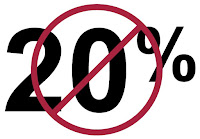Home Buyer Tip: Don't Forget About Closing Costs
In addition to saving for a down payment, you’ll need to budget for the money required to close your mortgage. Closing costs generally run between 2% and 5% of your loan amount. You can shop around and compare prices for certain closing expenses, such as homeowners insurance, home inspections and title searches. You can also defray costs by asking the seller to pay for a portion of your closing costs when you make an offer. Calculate your expected closing costs to help you set your budget.


















